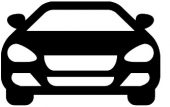

You may have been driving a vehicle for many years but over a period of time due to several factors, you may have developed certain medical conditions which may not be suitable for driving. Remember that if you have a driving licence then you need to keep driving and vehicle licensing agency (DVLA) updated about:
- Development of any notifiable medical condition or disability
- Condition or disability that has got worse after you have got the licence
Notifiable conditions include those conditions which can affect your ability to drive properly. These conditions include:
- Epilepsy
- Visual impairments
- Strokes
- Neurological and mental health conditions
Remember that if you do not inform about any condition that may affect your ability to drive safely then you may be fined up to 1000 pounds or can also be prosecuted if you have an accident. You can keep the agency posted by filling up forms or by calling or by visiting them personally.
Some of the common medical restriction codes are as follows: For detail information on below codes call DVLA customer care directly at contact number mentioned in the below infographic
CODE DESCRIPTION
003 prosthesis or orthosis of limbs
005 limited use due to medical conditions
005.01 limited to daytime journeys
005.02 limited to journeys in a set radius from the holders place of residence
005.03 driving without passengers
005.04 limited to journeys with speed not greater than a set limit
005.05 driving authorised only when accompanied by a holder of a driving licence
005.06 without a trailor
005.07 no driving on motorways
005.08 no alcohol
In order to ensure safe driving keep in mind that you should always keep the agencies updated about your medical conditions. After all, it is better to be safe than sorry!














